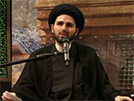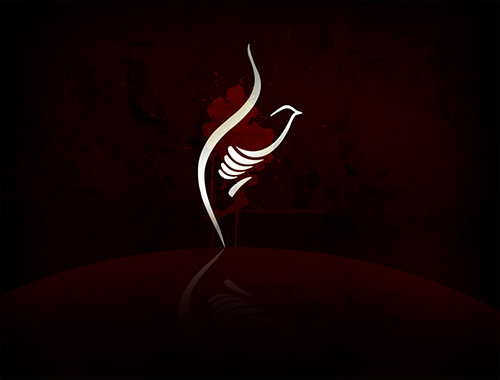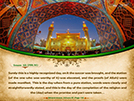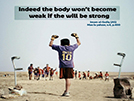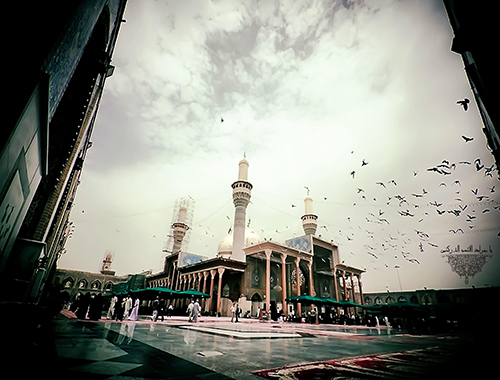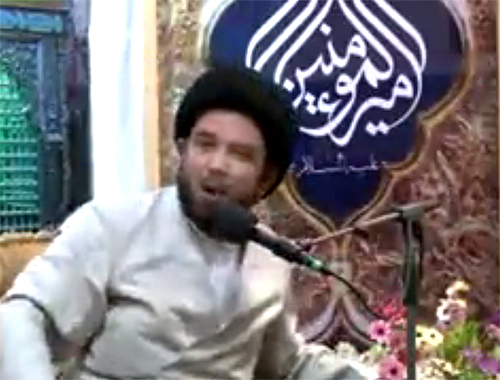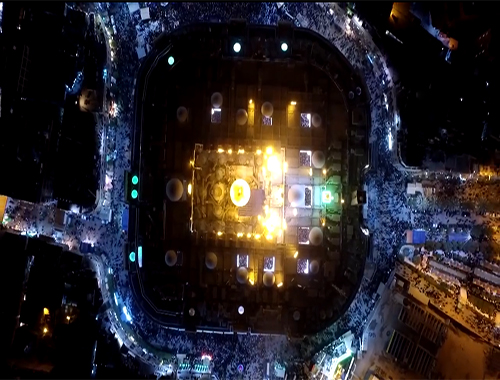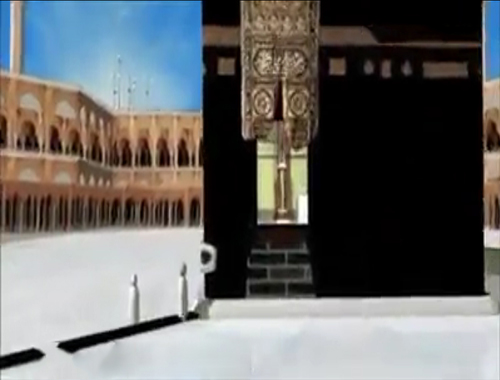Birth and upbringing
- Details
- Hits: 8719
Birth and upbringing
The Imam’s Noble Lineage
Imam Abu Muhammad al-Hasan al-Askari (AS) was from the heart of the prophetic family by which Allah had honored the Arabs and Muslims. It was the holiest family that had undertaken the issues of truth and justice among all peoples of the earth. There was, is, and will be no lineage in this world like this noble lineage which Imam al-Askari (AS) belonged to.
He was the son of Imam al-Hadi bin[1] Imam Muhammad al-Jawad bin Imam Ali ar-Redha bin Imam Musa al-Kadhim bin Imam Ja’far as-Sadiq bin Imam Muhammad al-Baqir bin Imam Ali Zaynol Aabidin (as-Sajjad) bin Imam al-Husayn bin Imam Ali bin Abu Talib (peace be on them). These were the infallible imams of the Ahlul Bayt (AS) whom Allah had kept uncleanness away from and purified a thorough purifying, and whom the Prophet (AS) had made as the boat of rescue and safety for people.
His Father
His father was Imam Ali al-Hadi (AS), the tenth imam of the Shia. He was from the masters of the Ahlul Bayt (AS) and the most knowledgeable, pious, and virtuous of all people at his time.
His Mother
His mother was the best of women at her time in her chastity, purity, and piety. Historians say she was from the good knowing women.[2] Imam al-Hadi (AS) praised her by saying, ‘Saleel (her name) was purified from error, defect, and impurity.’[3]
She was a bondmaid[4] from an-Nawbah.[5] It did not harm her that she was a bondmaid, for man in the view of Islam is exalted by his guidance, piety, and propriety, and he is degraded by deviation from the right path.
Historians disagreed on her name. Some of them said her name was Saleel which was the most correct according to the previous tradition of Imam al-Hadi (AS). Some said she was called Sawsan.[6] Others said her name was Hadithah,[7] and others said Hareebah.
The Great Newborn Child
The birth of the newborn boy, Abu Muhammad, the descendant of prophethood and the remainder of imamate, made the world shine and made Yathrib (Medina) and Samarra’ bloom. This great newborn baby was the continuity of the life of his infallible fathers who lit the intellectual life in the world of Islam. Delight and joy filled the hearts of the Prophetic family for they knew that he would be the imam after his father as Imam al-Hadi (AS) had told them.
Some historians said he was born in Medina,[8] and some others said in Samarra’.[9] Historians also gave different dates for his birth. It was said that he was born in Rabee’ al-Awwal[10] 230AH,[11] or 231,[12] or 232,[13] or 233.[14]
Ceremonies Of Birth
After the birth of this blessed son, Imam al-Hadi (AS) recited the azan in his right ear, and the eqama in his left ear. This was the first hymn that this blessed newborn baby met life with; “Allah is great, there is no god but Allah”.
On the seventh day after birth, Imam al-Hadi (AS) cut the hair of his newborn child and gave silver or gold as much as the weight of his son’s hair to the poor as charity.
His Name And Surname
Imam al-Hadi (AS) named his blessed newborn child as al-Hasan like the name of his great uncle, the master of the youth of Paradise. He surnamed him as Abu Muhammad,[15] and Muhammad was the name of the awaited Imam al-Mahdi (AS), the great reformer and savior of humanity and the sought hope of the deprived and the disabled in the earth.
His Epithets
His epithets expressed his high and noble qualities. He was called:
1. Al-Khalis (the pure)[16]
2. Al-Hadi (the guide)[17]
3. Al-Askari (military);[18] he was called so because of the country (Samarra’) he lived in which was a military camp.
4. Az-Zakiy (pure, chaste, righteous)[19]
5. Al-Khass (peculiar),[20] that Allah had distinguished him with virtues and with the responding to his supplications
6. As-Samit (silent),[21] that he was silent and he spoke just wisdom, knowledge, and the mention of Allah
7. As-Siraj (lamp),[22] that he was as a lamp lighting the way and guiding the deviant to righteousness
8. At-Taqiy (pious)[23]
His Mien
Ahmad bin Ubaydillah bin Khaqan said about Imam al-Askari (AS), ‘He was brown with big eyes, fine stature, beautiful face, and good body. He had gravity and solemnity.[24] And it was said he was between brown and white.’[25]
His Upbringing
Imam Abu Muhammad (AS) grew up in the house of guidance and the center of imamate and general authority of Muslims…that noble house which Allah had kept uncleanness away from its people and purified them thoroughly.
Ash-Shabrawi says about this exalted house, ‘What an honorable house it is and what a glorious lineage it is! It is the house of pride and exaltation. They are all equal in the noble root, in the good inners, and in glory like the teeth of a comb. How an exalted house it is! It has competed with the heaven in its highness and nobility, and has gone higher than the polestars in rank and position.
It has all qualities of perfection that it is not excepted by “other than” or “except”. These Imams have been ordered in glory like the order of pearls, and harmonized in honor that the first of them equals the next. Many were those who strove to degrade this house but Allah exalted and still exalts it, and many were those who spared no effort to separate the unity of this house but Allah gathered and gathers it. How many rights of this house were lost but Allah does not ignore or lose…’[26]
Educational studies say that house has great influence on the forming of man’s behaviors and the building of his personality. The good or bad scenes he sees inside the house are pressed inside him and shall adhere to him throughout his life. In the light of this fact, Imam Abu Muhammad (AS) got the highest scenes of the purest education. He grew up in a house that Allah had purified and exalted…that house that raised the Word of Allah high in the earth and offered dear sacrifices for the sake of Islam.
Imam Abu Muhammad (AS) grew up in the house of the Qur'an and the heart of Islam. His father Imam al-Hadi (AS) fed him with guidance and ideals to be the continuity of the mission of Islam.
God-Fearing
The distinct aspect in the childhood of Imam Abu Muhammad al-Hasan al-Askari (AS) was the fear of Allah. He was God-fearing since his early years. Historians mentioned that one day some man passed by Imam Abu Muhammad (AS) and saw him cry while he was with his fellow children. The man thought that this child cried for the toys in the children’s hands and that he could not participate in their playing. The man told the child that he would buy him what he might play with. The child said,
‘No! We have not been created for play.’
The man was astonished and said, ‘Then, what for we have been created?’
The child said, ‘For knowledge and worship.’
The man asked the child, ‘Where have you got this from?’
The child said, ‘From this saying of Allah (What! Did you then think that We had created you in vain)[27].’
The man was astonished and confused. He said to the child, ‘What has happened to you while you are guiltless little child?’
The child said, ‘Be away from me! I have seen my mother set fire to big pieces of firewood but fire is not lit except with small pieces, and I fear that I shall be from the small pieces of the firewood of the Hell.’[28]
The faith in Allah was a part and an element of Imam Abu Muhammad (AS). He did not fear but Allah and this remained in him until the last moment of his life.
Notes :
[1] Bin means “son of”.
[2] Uyun al-Mu’jizat.
[3] A’yan ash-Shia, vol.3 p.289.
[4] Usul al-Kafi.
[5] Sirr as-Silsilah ath-Thahabiyyah, p.39. An-Nawbah is a wide area in the south of Egypt. The Prophet (AS) praised the people of an-Nawbah by saying, ‘Whoever has no brother, let him take a brother from an-Nawbah.’
[6] Bihar al-Anwar, vol.50 p.37.
[7] Al-Irshad, p.315.
[8] Akhbar ad-Duwal, p.117, Bahr al-Ansab, p.2, Tuhfat al-Imam, p.86, Ilal ash-Sharayi’.
[9] Jawahir al-Ahkam.
[10] The third month in the Islamic calendar.
[11] Bihar al-Anwar, vol.50 p.35, Tareekh Abul Fida’, vol.2 p.48, Ilal ash-Sharayi’.
[12] An-Nujoom az-Zahirah, vol.3 p.32, Sirr as-Silsilah al-Alawiyyah, p.39.
[13] Bahr al-Ansab, p.2, Akhbar ad-Duwal, p.117, al-Ittihaf Bihubil Ashraf, p.86, al-Kamil, vol.5 p.373.
[14] Encyclopedia of al-Bustani, vol.7 p.45.
[15] Akhbar ad-Duwal, p.117, Bahr al-Ansab, p.2, Tuhfat al-Anam, p.86, an-Nujoom az-Zahirah, vol.3 p.32.
[16] Akhbar ad-Duwal, p.117, Bahr al-Ansab, p.2.
[17] Bahr al-Ansab, p.2.
[18] Ibid.
[19] Tuhfat al-Anam, p.87, Bihar al-Anwar, vol.50 p.236.
[20] Tuhfat al-Anam, p.87.
[21] Ibid.
[22] Jawharat al-Kalam, p.154.
[23] Safinat al-Bihar, vol.1 p.259.
[24] Bihar al-Anwar, vol.50 p.326.
[25] Ibid., p.238, Akhbar ad-Duwal, p.117.
[26] Al-Ittihaf Bihubil Ashraf, p.68.
[27] Qur'an, 23:115.
[28] Jawharat al-Kalam, p.155, the Encyclopedia of al-Bustani, vol.7 p.45.
Taken from : The Life Of Imam Al-Hasan Al-Askari Study And Analysis By: Baqir Shareef al-Qurashi Translation by: Abdullah al-Shahin
His Father
His father was Imam Ali al-Hadi (AS), the tenth imam of the Shia. He was from the masters of the Ahlul Bayt (AS) and the most knowledgeable, pious, and virtuous of all people at his time.
His Mother
His mother was the best of women at her time in her chastity, purity, and piety. Historians say she was from the good knowing women.[2] Imam al-Hadi (AS) praised her by saying, ‘Saleel (her name) was purified from error, defect, and impurity.’[3]
She was a bondmaid[4] from an-Nawbah.[5] It did not harm her that she was a bondmaid, for man in the view of Islam is exalted by his guidance, piety, and propriety, and he is degraded by deviation from the right path.
Historians disagreed on her name. Some of them said her name was Saleel which was the most correct according to the previous tradition of Imam al-Hadi (AS). Some said she was called Sawsan.[6] Others said her name was Hadithah,[7] and others said Hareebah.
The Great Newborn Child
The birth of the newborn boy, Abu Muhammad, the descendant of prophethood and the remainder of imamate, made the world shine and made Yathrib (Medina) and Samarra’ bloom. This great newborn baby was the continuity of the life of his infallible fathers who lit the intellectual life in the world of Islam. Delight and joy filled the hearts of the Prophetic family for they knew that he would be the imam after his father as Imam al-Hadi (AS) had told them.
Some historians said he was born in Medina,[8] and some others said in Samarra’.[9] Historians also gave different dates for his birth. It was said that he was born in Rabee’ al-Awwal[10] 230AH,[11] or 231,[12] or 232,[13] or 233.[14]
Ceremonies Of Birth
After the birth of this blessed son, Imam al-Hadi (AS) recited the azan in his right ear, and the eqama in his left ear. This was the first hymn that this blessed newborn baby met life with; “Allah is great, there is no god but Allah”.
On the seventh day after birth, Imam al-Hadi (AS) cut the hair of his newborn child and gave silver or gold as much as the weight of his son’s hair to the poor as charity.
His Name And Surname
Imam al-Hadi (AS) named his blessed newborn child as al-Hasan like the name of his great uncle, the master of the youth of Paradise. He surnamed him as Abu Muhammad,[15] and Muhammad was the name of the awaited Imam al-Mahdi (AS), the great reformer and savior of humanity and the sought hope of the deprived and the disabled in the earth.
His Epithets
His epithets expressed his high and noble qualities. He was called:
1. Al-Khalis (the pure)[16]
2. Al-Hadi (the guide)[17]
3. Al-Askari (military);[18] he was called so because of the country (Samarra’) he lived in which was a military camp.
4. Az-Zakiy (pure, chaste, righteous)[19]
5. Al-Khass (peculiar),[20] that Allah had distinguished him with virtues and with the responding to his supplications
6. As-Samit (silent),[21] that he was silent and he spoke just wisdom, knowledge, and the mention of Allah
7. As-Siraj (lamp),[22] that he was as a lamp lighting the way and guiding the deviant to righteousness
8. At-Taqiy (pious)[23]
His Mien
Ahmad bin Ubaydillah bin Khaqan said about Imam al-Askari (AS), ‘He was brown with big eyes, fine stature, beautiful face, and good body. He had gravity and solemnity.[24] And it was said he was between brown and white.’[25]
His Upbringing
Imam Abu Muhammad (AS) grew up in the house of guidance and the center of imamate and general authority of Muslims…that noble house which Allah had kept uncleanness away from its people and purified them thoroughly.
Ash-Shabrawi says about this exalted house, ‘What an honorable house it is and what a glorious lineage it is! It is the house of pride and exaltation. They are all equal in the noble root, in the good inners, and in glory like the teeth of a comb. How an exalted house it is! It has competed with the heaven in its highness and nobility, and has gone higher than the polestars in rank and position.
It has all qualities of perfection that it is not excepted by “other than” or “except”. These Imams have been ordered in glory like the order of pearls, and harmonized in honor that the first of them equals the next. Many were those who strove to degrade this house but Allah exalted and still exalts it, and many were those who spared no effort to separate the unity of this house but Allah gathered and gathers it. How many rights of this house were lost but Allah does not ignore or lose…’[26]
Educational studies say that house has great influence on the forming of man’s behaviors and the building of his personality. The good or bad scenes he sees inside the house are pressed inside him and shall adhere to him throughout his life. In the light of this fact, Imam Abu Muhammad (AS) got the highest scenes of the purest education. He grew up in a house that Allah had purified and exalted…that house that raised the Word of Allah high in the earth and offered dear sacrifices for the sake of Islam.
Imam Abu Muhammad (AS) grew up in the house of the Qur'an and the heart of Islam. His father Imam al-Hadi (AS) fed him with guidance and ideals to be the continuity of the mission of Islam.
God-Fearing
The distinct aspect in the childhood of Imam Abu Muhammad al-Hasan al-Askari (AS) was the fear of Allah. He was God-fearing since his early years. Historians mentioned that one day some man passed by Imam Abu Muhammad (AS) and saw him cry while he was with his fellow children. The man thought that this child cried for the toys in the children’s hands and that he could not participate in their playing. The man told the child that he would buy him what he might play with. The child said,
‘No! We have not been created for play.’
The man was astonished and said, ‘Then, what for we have been created?’
The child said, ‘For knowledge and worship.’
The man asked the child, ‘Where have you got this from?’
The child said, ‘From this saying of Allah (What! Did you then think that We had created you in vain)[27].’
The man was astonished and confused. He said to the child, ‘What has happened to you while you are guiltless little child?’
The child said, ‘Be away from me! I have seen my mother set fire to big pieces of firewood but fire is not lit except with small pieces, and I fear that I shall be from the small pieces of the firewood of the Hell.’[28]
The faith in Allah was a part and an element of Imam Abu Muhammad (AS). He did not fear but Allah and this remained in him until the last moment of his life.
Notes :
[1] Bin means “son of”.
[2] Uyun al-Mu’jizat.
[3] A’yan ash-Shia, vol.3 p.289.
[4] Usul al-Kafi.
[5] Sirr as-Silsilah ath-Thahabiyyah, p.39. An-Nawbah is a wide area in the south of Egypt. The Prophet (AS) praised the people of an-Nawbah by saying, ‘Whoever has no brother, let him take a brother from an-Nawbah.’
[6] Bihar al-Anwar, vol.50 p.37.
[7] Al-Irshad, p.315.
[8] Akhbar ad-Duwal, p.117, Bahr al-Ansab, p.2, Tuhfat al-Imam, p.86, Ilal ash-Sharayi’.
[9] Jawahir al-Ahkam.
[10] The third month in the Islamic calendar.
[11] Bihar al-Anwar, vol.50 p.35, Tareekh Abul Fida’, vol.2 p.48, Ilal ash-Sharayi’.
[12] An-Nujoom az-Zahirah, vol.3 p.32, Sirr as-Silsilah al-Alawiyyah, p.39.
[13] Bahr al-Ansab, p.2, Akhbar ad-Duwal, p.117, al-Ittihaf Bihubil Ashraf, p.86, al-Kamil, vol.5 p.373.
[14] Encyclopedia of al-Bustani, vol.7 p.45.
[15] Akhbar ad-Duwal, p.117, Bahr al-Ansab, p.2, Tuhfat al-Anam, p.86, an-Nujoom az-Zahirah, vol.3 p.32.
[16] Akhbar ad-Duwal, p.117, Bahr al-Ansab, p.2.
[17] Bahr al-Ansab, p.2.
[18] Ibid.
[19] Tuhfat al-Anam, p.87, Bihar al-Anwar, vol.50 p.236.
[20] Tuhfat al-Anam, p.87.
[21] Ibid.
[22] Jawharat al-Kalam, p.154.
[23] Safinat al-Bihar, vol.1 p.259.
[24] Bihar al-Anwar, vol.50 p.326.
[25] Ibid., p.238, Akhbar ad-Duwal, p.117.
[26] Al-Ittihaf Bihubil Ashraf, p.68.
[27] Qur'an, 23:115.
[28] Jawharat al-Kalam, p.155, the Encyclopedia of al-Bustani, vol.7 p.45.
Taken from : The Life Of Imam Al-Hasan Al-Askari Study And Analysis By: Baqir Shareef al-Qurashi Translation by: Abdullah al-Shahin

